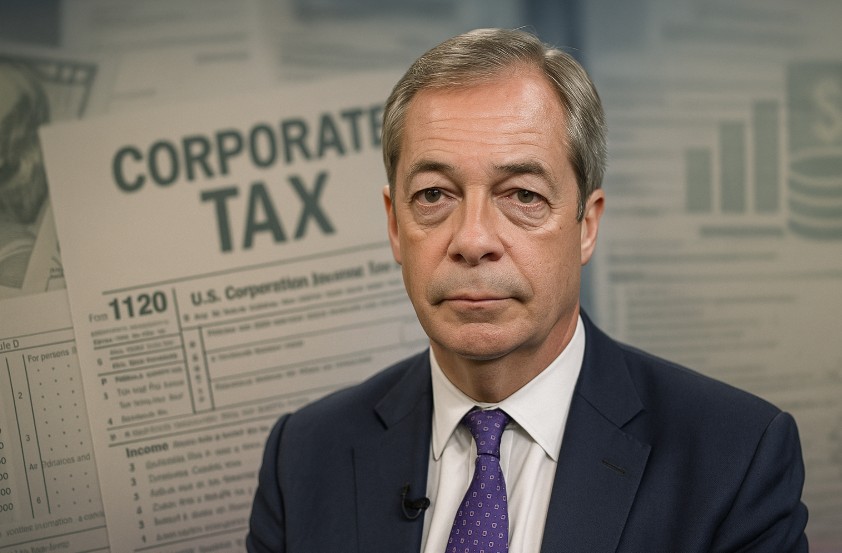Nigel Farage has long been a prominent figure in British politics, known for his outspoken views on issues ranging from Brexit to tax policy.
However, questions about Nigel Farage tax avoidance have surfaced following reports that he channels his GB News earnings through a private company.
This arrangement has sparked debate over whether political leaders should take advantage of tax structures that appear to reduce their personal liabilities, particularly when they have previously criticised others for similar practices.
What Is Nigel Farage Accused Of In Relation To Tax Avoidance?
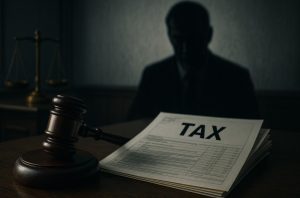
Nigel Farage has been accused of reducing his tax liabilities by using a private company, Thorn in the Side Ltd, to manage payments from his GB News role and other external engagements.
Reports revealed that payments for his appearances on GB News are directed to this company, rather than to him personally.
By using this method, Farage is able to benefit from a corporation tax rate of 25 per cent instead of the 40 per cent higher rate income tax that applies to individual earnings above £50,270.
While this practice is legal, it has drawn criticism because it appears to conflict with his earlier remarks on tax avoidance.
Media coverage has highlighted that the scale of his GB News income, combined with the way it is processed through his company, has led to a significant increase in the company’s value. This has intensified public interest, particularly given his political profile and influence.
How Does Nigel Farage Benefit Financially From Using A Private Company?
The financial benefits for Farage through his company are substantial. By opting to be paid through Thorn in the Side Ltd, he is able to legally structure his finances in a more tax-efficient manner.
Key benefits include:
- Lower tax liability: paying 25 per cent corporation tax rather than 40 per cent income tax.
- Ability to deduct expenses associated with business activities, such as travel or consultancy costs.
- Greater control over when profits are drawn as salary or dividends.
Reports suggest that Thorn in the Side Ltd’s cash holdings reached £1.7 million in May, marking a significant rise from the previous year.
This increase is directly linked to his GB News income, which has reportedly amounted to over £400,000 since the general election. On a per-hour basis, his pay has been estimated at over £2,000.
The table below shows a simplified comparison between how much Farage might retain under a corporate structure versus direct employment taxation.
| Earnings Channel | Tax Rate Applied | Net Retained (on £400,000) |
| Through Private Company | 25% Corporation Tax | £300,000 |
| As Personal Income | 40% Income Tax | £240,000 |
This comparison illustrates the potential financial advantage of choosing a corporate structure for high earners.
What Is Thorn In The Side Ltd And How Is It Linked To Farage’s Income?
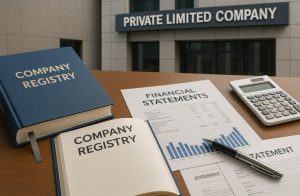
Thorn in the Side Ltd is the private company used by Nigel Farage to manage his earnings from media appearances and consultancy work. As the sole director and shareholder, Farage controls all of the company’s operations and financial decisions. Its accounts reveal substantial cash growth, making it central to discussions about his financial arrangements.
History And Purpose Of The Company
The company has been trading for more than 15 years and has filed consistent accounts with Companies House. Originally set up to manage Farage’s various business interests, Thorn in the Side Ltd has diversified into consultancy and media services. Its long trading history is one reason his representatives argue that it is not simply a vehicle for tax avoidance but an operational entity.
Financial Growth And Cash Reserves
Recent filings showed that the company’s cash reserves had reached £1.7 million, an increase of more than £1 million in a single year. This rise is directly linked to Farage’s media earnings, particularly from his GB News show. The financial statements confirm that the company has been profitable and is used as the main channel for his commercial work.
Role In Managing Farage’s Earnings
By routing his income through Thorn in the Side Ltd, Farage benefits from paying corporation tax at 25 per cent rather than the higher rate of personal income tax. Additionally, the company is able to deduct legitimate expenses before profits are calculated, which reduces the taxable amount further. This method is both legal and common among public figures in broadcasting and consultancy.
Why Has Nigel Farage Faced Criticism Over His Tax Arrangements?
While the use of a private company is legal, Farage has faced intense criticism due to his past statements and political positioning. Critics argue that his actions do not align with the values he promotes as a politician, particularly on issues of fairness and accountability.
Previous Statements On Tax Avoidance
Farage has previously referred to tax avoidance as a “common enemy” during his political career, calling for stronger action against individuals and companies who minimise their contributions to the public purse. This past rhetoric has been highlighted repeatedly in media reports, as it contrasts sharply with his own financial structuring.
Offshore Trust Fund Controversy
Years earlier, Farage came under fire for setting up a trust fund in an offshore tax haven. Although he later admitted it was a mistake and claimed he had never benefited from it, the revelation damaged his reputation on matters of financial transparency. The resurfacing of this issue alongside the current debate over Thorn in the Side Ltd has only fuelled criticism.
Public Perception And Political Credibility
The controversy is not just about legality but about public trust. Many voters expect political figures to lead by example when it comes to tax obligations. Farage’s use of corporate structures has therefore raised questions about his credibility, particularly as he seeks to position Reform UK as an alternative to the established parties.
Broader Debate On Fairness
Beyond Farage personally, the case has reignited a broader debate on whether the tax system unfairly allows wealthy individuals to benefit from arrangements that ordinary taxpayers cannot access. This has intensified calls for reform of rules surrounding personal service companies and highlighted the gap between political rhetoric and personal practice.
How Does Farage’s Tax Strategy Compare With Other Broadcasters?
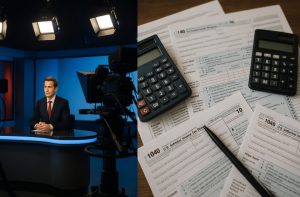
Farage’s arrangement is not unique among broadcasters. Many high-profile presenters have used personal service companies to manage their income.
This has created a long-standing tension with HM Revenue and Customs (HMRC), which argues that some arrangements should be treated as employment rather than corporate income.
Two notable examples are:
- Gary Lineker, who faced legal disputes with HMRC over whether he should be taxed as an employee for his work with the BBC and BT Sport.
- Adrian Chiles, who was challenged on the same grounds regarding his television presenting work.
The broadcasting industry has relied on personal service companies for years, mainly because they provide flexibility for both employers and contractors.
Employers avoid the responsibilities of formal employment, while contractors often retain more income after taxes.
The table below illustrates some of the differences between direct employment and contracting through a company.
| Feature | Employment Model | Personal Service Company |
| Tax Rate | Higher (Income Tax 40%) | Lower (Corporation Tax 25%) |
| Expense Deductions | Limited | Broader deductions allowed |
| Employment Benefits | Pension, sick pay, leave | Not provided |
| Administrative Burden | Minimal | Higher, requires accounting |
This comparison helps explain why the model remains attractive, despite HMRC’s continued efforts to challenge its use.
What Has Nigel Farage Said In His Defence?
Farage has responded to the controversy by maintaining that Thorn in the Side Ltd is a legitimate, long-standing company.
His spokesperson has stated that it provides services beyond his own broadcasting appearances and hires contractors to fulfil its obligations.
Farage has also clarified his personal stance on tax avoidance, suggesting that while some methods cross a line, most forms of legal tax planning are acceptable.
This defence highlights the distinction he draws between illegal tax evasion and lawful tax structuring, though critics argue that his political rhetoric has not always acknowledged this nuance.
What Are The Broader Implications For UK Politics And Tax Rules?
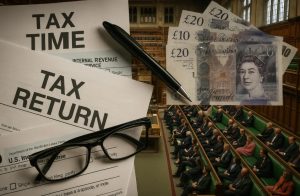
The emergence of these details just before Reform UK’s annual conference intensified the political impact. At the conference, Farage sought to rally supporters by predicting that a general election could come as early as 2027.
The news surrounding his tax arrangements, however, cast a shadow over the event and sparked questions about the financial practices of political leaders more broadly.
For UK politics, the issue extends beyond Farage. It raises broader concerns about the fairness of the tax system, particularly whether rules around personal service companies allow high earners to reduce their liabilities disproportionately compared to ordinary taxpayers.
There is also the possibility that ongoing controversies may drive policymakers to revisit tax legislation, especially in relation to the broadcasting sector and other industries where personal service companies are common.
While the arrangements remain legal, the political cost of being seen to exploit them may encourage reform in the future.
Conclusion
The reports surrounding Nigel Farage tax avoidance highlight the tension between legality and public perception. By using Thorn in the Side Ltd, Farage has reduced his personal tax liabilities in ways that are entirely lawful but politically controversial.
His critics point to hypocrisy, given his previous comments on tax avoidance, while his defenders stress that his company is compliant and long established.
Ultimately, this case underscores broader debates in the UK about tax fairness, political accountability, and whether reforms are needed to close perceived loopholes in the system.
Frequently Asked Questions
Why do politicians face more scrutiny over tax avoidance?
Politicians are held to higher ethical standards because they influence policy and public trust. When they use tax avoidance strategies, it raises questions about hypocrisy and accountability.
What is the difference between tax avoidance and tax evasion?
Tax avoidance involves using legal methods to minimise tax liabilities, while tax evasion refers to illegal practices such as concealing income or falsifying records.
How do personal service companies help reduce tax bills?
Personal service companies allow individuals to pay corporation tax instead of higher rates of income tax, while also deducting business expenses. This can result in significant savings.
Has HMRC successfully challenged other high-profile figures?
Yes, HMRC has pursued cases against several broadcasters, including Gary Lineker and Adrian Chiles, arguing that their work should be taxed as employment income rather than corporate earnings.
Why is Nigel Farage’s case significant for UK politics?
Farage’s case is notable because of his political profile and prior criticisms of tax avoidance. It raises questions about consistency and political credibility.
Could Reform UK be affected by this controversy?
The revelations could impact Reform UK’s image, especially among voters who value financial transparency. However, supporters may dismiss the controversy as a distraction from larger political issues.
What might change in tax laws after such controversies?
Cases like this may encourage policymakers to review tax loopholes, clarify employment rules for broadcasters, and strengthen HMRC’s ability to challenge avoidance practices.
Related Articles:

